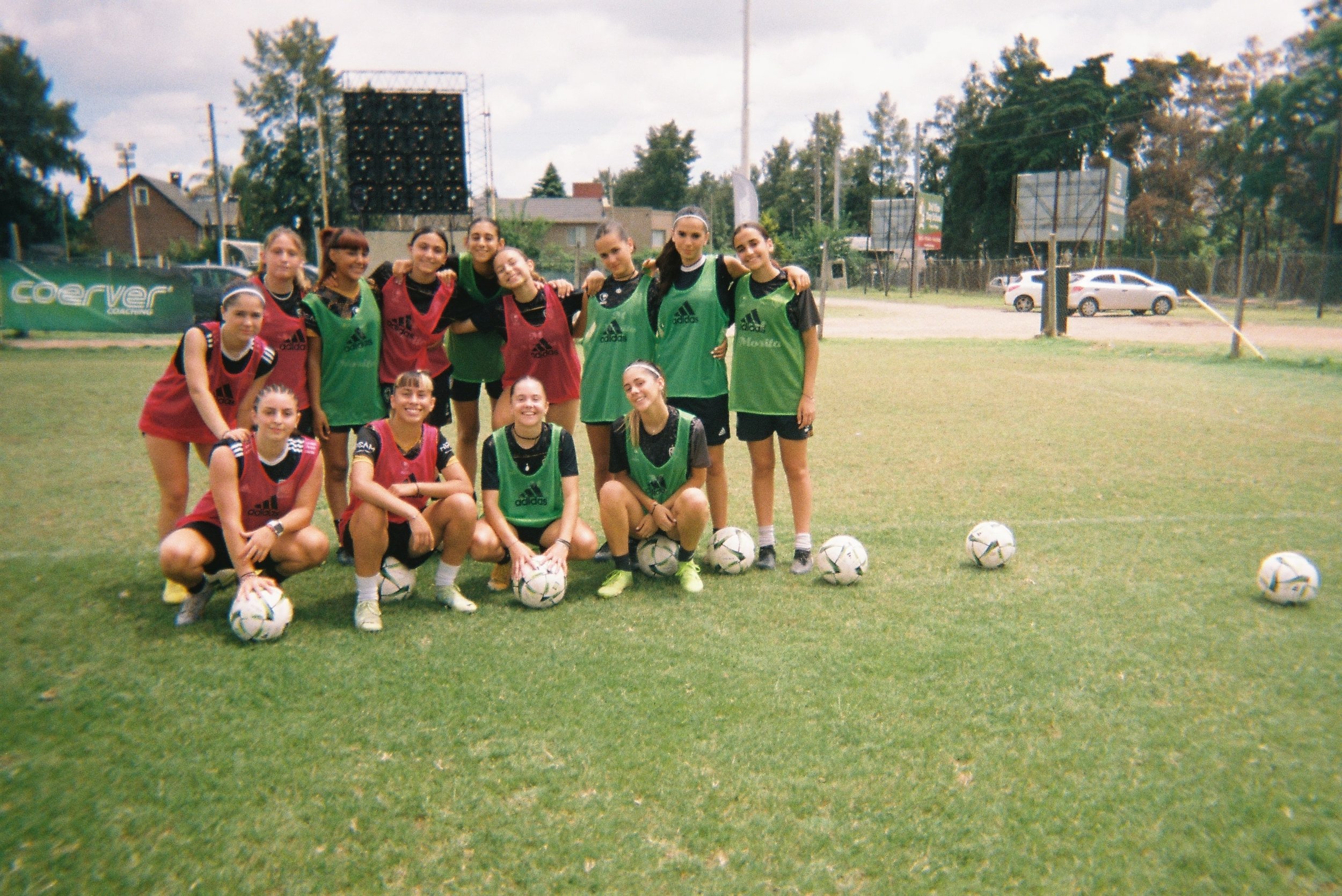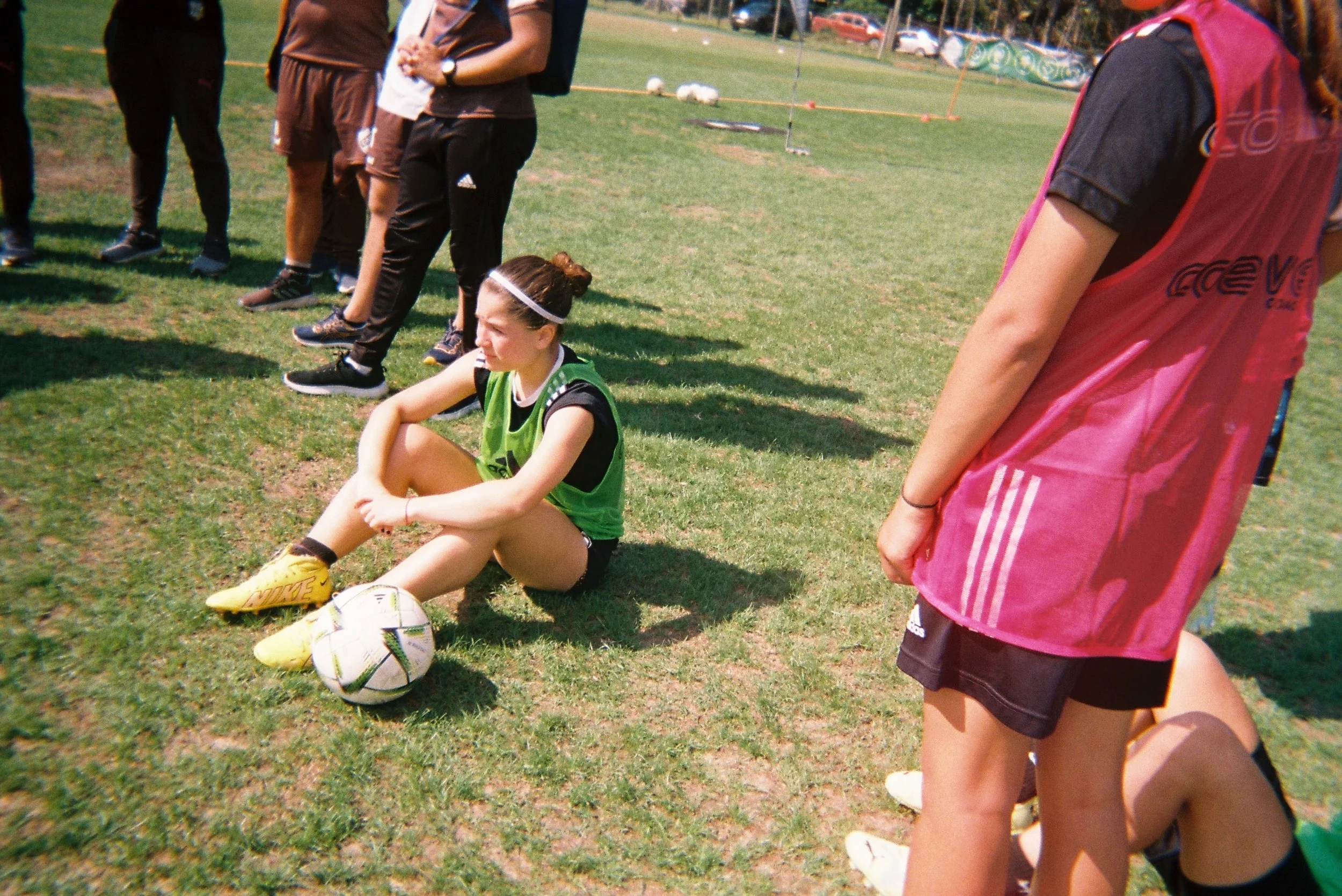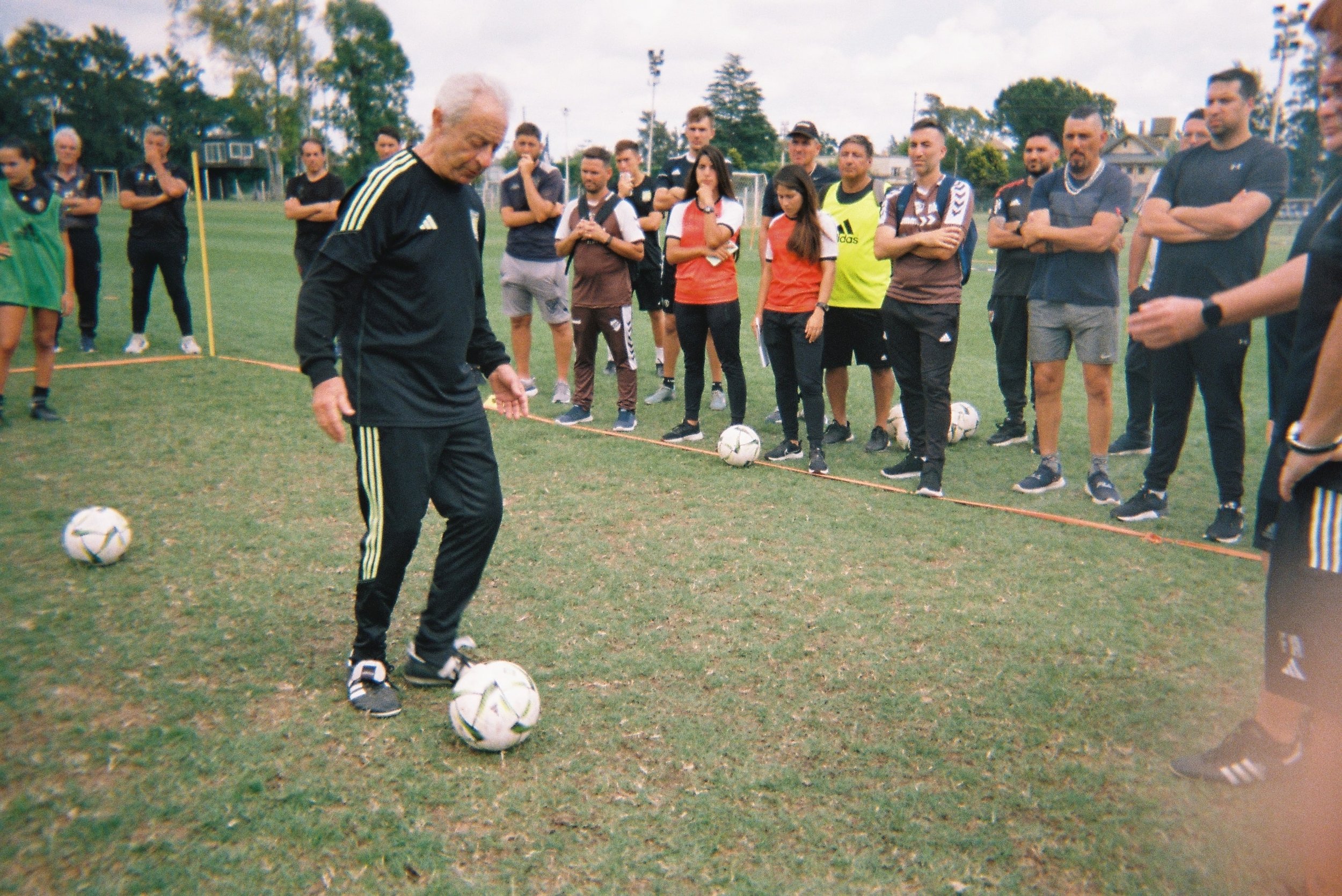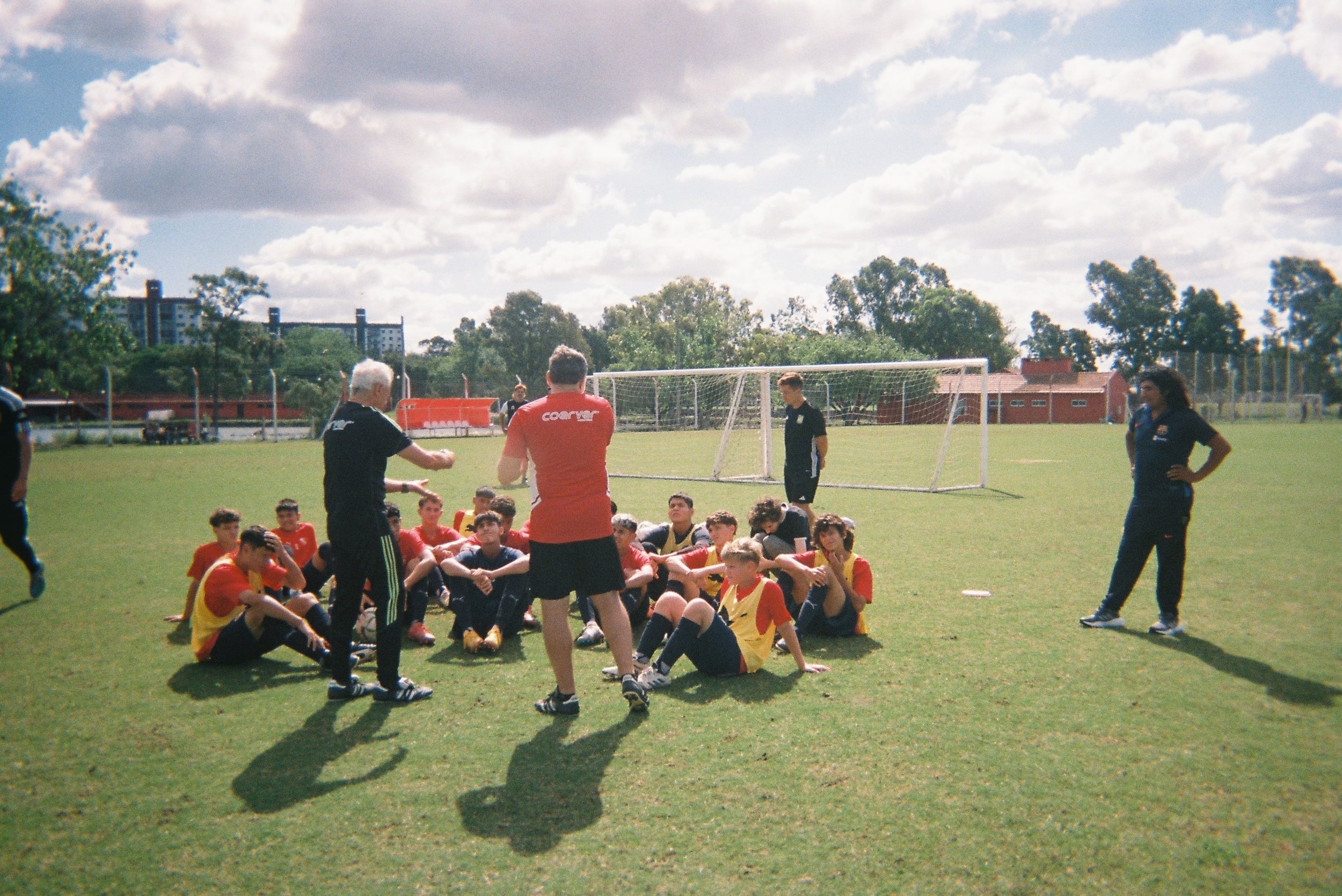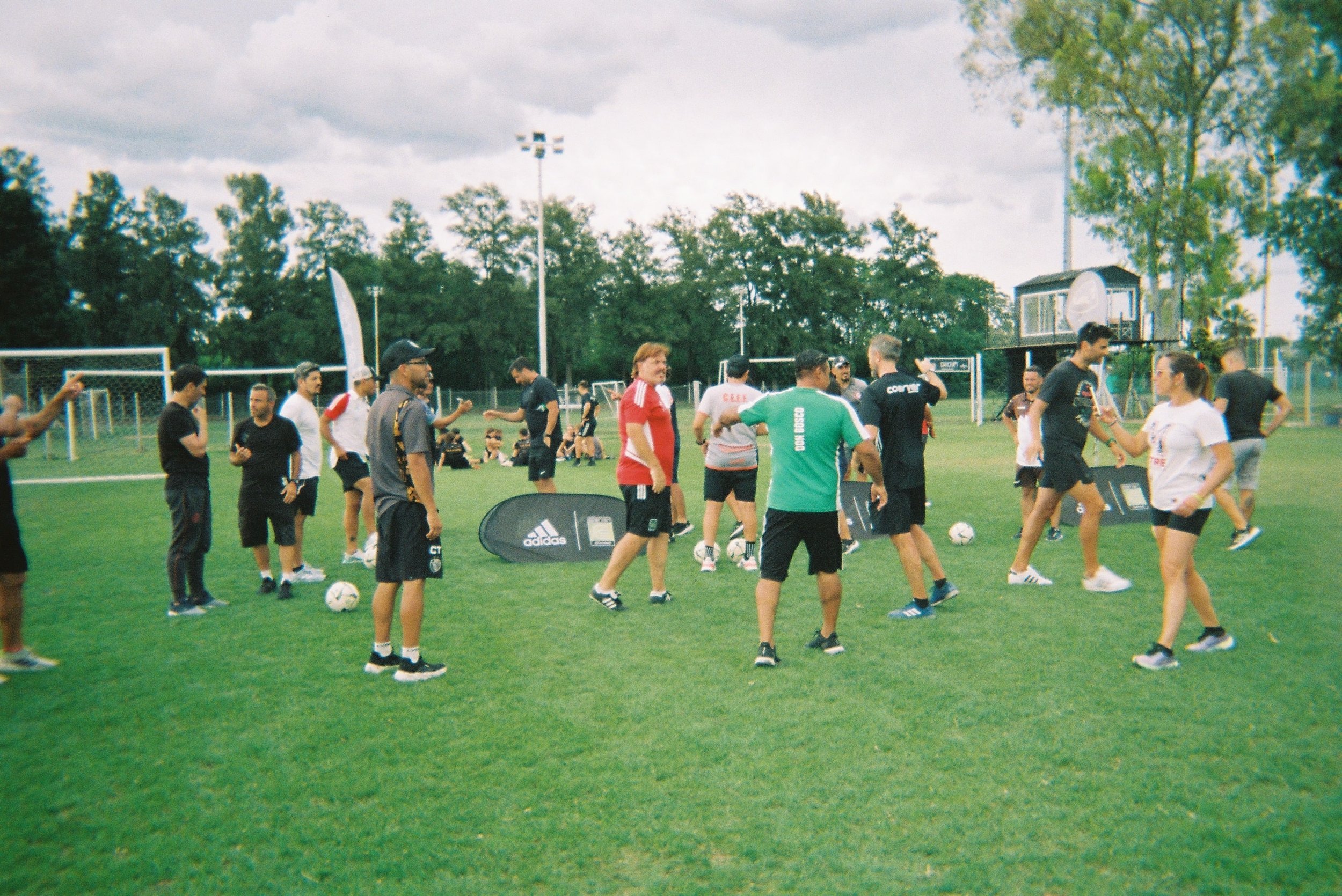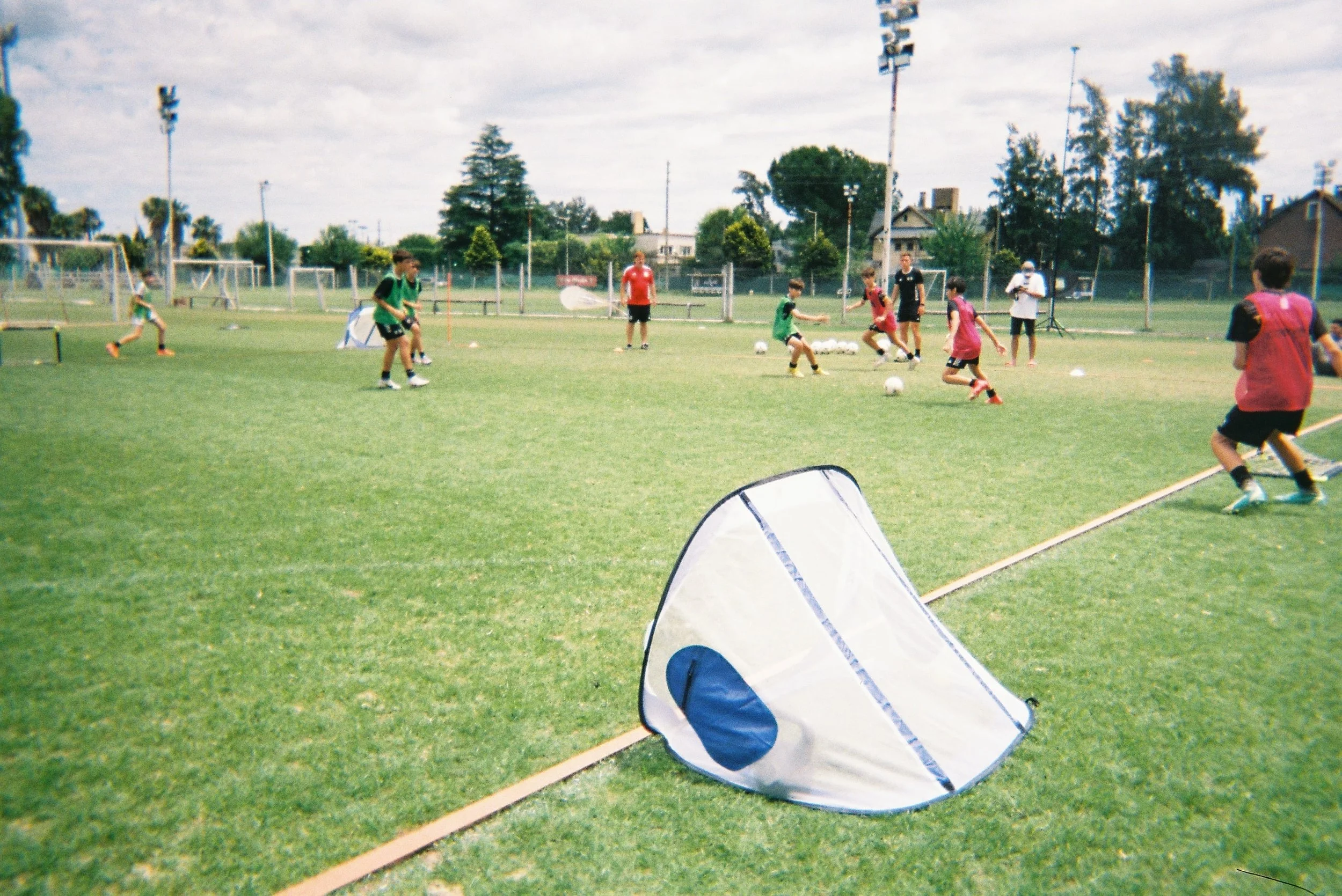‘She-Maradona’, Skills, Salorio
Daniela Rodio, Argentina
Daniela Rodio is a football coach living in Buenos Aires, Argentina. She coaches at D10 F.C, one of the leading youth football clubs in Buenos Aires, and is an advocate of the Coerver coaching method. Coerver Coaching (@coervercoaching) is the world’s number one football skills teaching method, with player and coach education programmes globally.
Can you introduce yourself and tell us about your current football life?
My name is Daniela Rodio and I am 35 years old. I was born in the beautiful province of Mendoza near the Andes in Argentina, and am now living in Buenos Aires. I am a football coach, currently working with D10 F.C., coaching the girls team. We practice three times a week, and tournament matches take place on Sundays. I always begin our training with Coerver skills activities, such as ball mastery, 1v1 exercises, and then add attack/defense in small groups.
I like to work with the Coerver method, because I think it is a great way to improve the girls' individual skills and also helps them to develop better as a team. It builds them as players and prepares each player to handle the pressure during a match. It is an excellent tool for coaches who are training and shaping young players who want to reach a higher level.
What has your football journey been like?
I got involved in football when I was a child. My uncle taught me how to play. He is a really big football fan, who loves to watch any match, even though he is a San Lorenzo fan! He had a son, but my cousin was not really into playing. One day we were playing in his backyard, when he was trying to teach my cousin how to kick a ball. He saw that I did it too, and pretty well. So he decided he would teach me instead of my cousin.
I was really happy and for me it was all about playing. When we were a bit older, I used to go with my cousin to play in his neighborhood. I was the only girl. Of course, it was quite unusual at the time in Argentina. It was 1996, and girls “weren't supposed to be playing football”. But they would let me play anyway, since they thought I was really good, and I made good friends too!
My journey as a player really started when I moved to the US in December 1997. My dad is in the military, and he was sent as a diplomat to the US. We lived in Virginia for two years. I had to go to school like a regular kid in the US, and that is where I really got my skills with the ball.
We came back to Argentina in January 2000 when I was a teen, and I played for a few clubs here. But I got injured during training in 2004. My teammate tried to sweep the ball off my feet, but instead of hitting the ball, her boot went right into my ankle. The impact was so strong that it made the cartilage inside my ankle explode into tiny pieces. It was extremely painful. The club called the doctors, and they told me that I could never play football again and that I might need surgery. I was 16 years old and I was devastated. I felt miserable for a few months, but I decided that I had to pull through.
Even if I could not play anymore, I needed to be involved. I needed to feel the grass under my feet. That is the moment I decided to become a football coach, to teach girls and young women that gender is not an issue; to make them feel and let them know that they can achieve big things in sports.
What role does football play in your community and in Argentina?
We live and breathe football in Argentina. It is a part of our culture. We are born with it. We feel it very differently. Almost every kid in this country dreams of becoming the next Lionel Messi. Football is an escape from any hard or difficult reality that we could be going through, it is an excuse to get together with friends, to go to that Sunday match religiously. It is a way of life.
I am a huge fan of Boca Juniors. Before I started working as a coach, I would attend every single match. I even traveled for the Libertadores Finals. Now, I go whenever I can, or watch the matches on TV.
What did you try to show with the photos? Was there any wider meaning with the photos?
The people in the photos are coaches from all over South America, mostly Argentina, and some from Bolivia and Peru as well. The pictures were taken at D10 F.C., where a Coerver Coaching event took place with very important people from the football world, such as Gerardo Salorio and the Co-Founder of Coerver Coaching Alf Galustian. And of course, the players, who had a great time!
For me, Gerardo Salorio is my mentor. He is a football encyclopedia. He has the best advice, he knows how to speak and really get under the skin of each player. And he is the best when it comes to sharing his knowledge. We are talking about the person who trained some of the best players in Argentina and the world.
During the Coerver event, I met Alf Galustian. I was amazed by his teaching skills. He is really passionate about football and as he said himself, he is always looking for a way to make the road easier for each player.
I tried to show what football means to us in Latin America, especially in Argentina; and how we live it. Also, I wanted to show what was going on at the event. How coaches learn, and expand their knowledge. We are always open to new ideas, training, and everything that can make us grow in our journey.
My favorite photo is where all the girls are posing together, as a team. It shows that they are really supportive of each other, that they are truly a team of young women aiming for the same goal.
Are there any stories connected with the people you photographed?
One of the coaches is Gaston de Anton, my husband. We met thanks to football, while we were both studying to become coaches at Menotti's School - a football school founded by Cesar Luis Menotti himself, FIFA World Cup champion with Argentina in 1978. We learnt from some of the best in Argentinian football history and it is where we got our AFA and CONMEBOL licenses to coach.
Gaston and I fell in love and later on he moved to Mexico for work and I stayed here in Argentina. We had a long distance relationship for almost a year, and then he came back. Now we are both working at D10 F.C., and we continue to learn together and from each other. We are a team.
Of course, our daily activities at home are mostly connected to football. We have our own football related debates, play a game where we plan our game strategy with famous teams and see which one would work best to play against each other. We have a lot of fun. Working together is one of the best things that ever happened to us!
What challenges have you had to overcome in football?
It was and sometimes still is very difficult to be a girl and a football player, especially when I was young. Football was very different back then. It was a very sexist environment and that made it exhausting for some of us. It was like we always had to prove to boys and men that we could play too, that sports have no gender, that football can also be a women's sport.
For me, it was the unequal distribution of training equipment. We did not get to use the gym, we did not get to have new balls, we did not get shirts that actually fit. Most of them were too big, since they were the old training shirts of the men's team, and of course, they did not have our names on the back. Women's football was not professional, so we did not get paid for playing. This is still happening in some professional clubs in Argentina. I hope this changes soon, we want women to become professional football players!
When I moved to the US, it was pretty difficult to fit in. The culture was different and I did not speak the language! It was hard. I was sad, and I could not make any friends. I did not want to go to school anymore. But when I tried out for the school's football (soccer) team, suddenly I found my peace. It gave me my first friends at school and in the country.
Even though we could not really communicate through words, we spoke through sport. My way of playing was different from theirs, and they really liked that. They used to call me the “she-Maradona” since I was a left-footed striker. Football simply overcame the language barrier.
What impact has football had on you? What ambitions do you have for the future?
Football has made me realize I could and can go far in sports. It has given me the confidence I needed. It has made me a strong believer that when you are determined to reach a goal, you give the best version of yourself, and you work for it; you can do it. Football has made me what I am today.
I live football with passion. It is my lifestyle. For me, football is life. It is what makes me happy - getting up to plan training exercises, going to practice, being around all these amazing girls who have the dream of becoming professional players one day. I would love to be able to grow as a coach, to work abroad in Europe or the US, to expand my knowledge, and help other women and girls to reach their dreams.
What are the opportunities for women and girls to play in your community?
Women's football is starting to grow fast in Argentina, mostly in Buenos Aires. We still have a long way to go in order to achieve as women. A lot of people still see football as a men's sport where women are not allowed. It is tough, but not impossible. Everyday we see more and more football clubs who build women's teams from scratch and are committed to making women's football professional, such as Boca Juniors, River Plate, Platense, and UAI Urquiza. Hopefully, this will replicate across the country and more girls will be able to play and grow professionally.
Nowadays, we have a lot of Argentinian women playing in big teams around the world. Some of the role models are Estefania Banini, playing for Atletico de Madrid in Spain; Florencia Bonsegundo, playing for Madrid CFF in Spain, and now young players like Sophie Braun, who is an American player with an Argentinian mother who decided to play for Argentina, currently playing for Club Leon Femenil in Mexico.
What is the future for football in Argentina? What would you like to change?
I strongly believe that football in Argentina has taken a turn after winning the FIFA World Cup in 2022. Now a lot of kids want to try out for different positions. Their idols inspire them to be consistent in training, to work harder, and they give them hope that everything is possible, which is the key to success.
I think it would be better if young players from other parts of the country had more chances, more opportunities to try out for big teams. It is very difficult to become a professional football player when you are so far away from the big cities that have most of the great teams in Argentina. Some of these players get a once in a lifetime opportunity, but a big amount of money is needed in order to travel and be able to afford the expenses. This has to change. We might be missing out on the next Martinez, Messi, or Maradona.
What impact has Coerver Coaching had on you and on your community?
I see Coerver Coaching as a tool for teaching and guiding young girls and boys to discover their maximum potential as players. It builds a basic knowledge which is very important for their future. It is not something you commonly see in Argentina, so this is why I think it is important to expand this method throughout the country, to give an opportunity for everyone.
I think that the Coerver method can really make a difference in Argentina, not only to improve the skills of a player, but also to strengthen their confidence and creativity by giving them a tool for life. It is definitely something I would have loved to have as a young player.
I was recently on the Youth Diploma 2 course, which was just great. It was a flowing programme full of new training ideas regarding the skills and creativity of each player. Working with Alf Galustian was amazing. He is full of knowledge and eager to share and explain every little detail to us. He wanted us to understand that the method really works for everyone.

